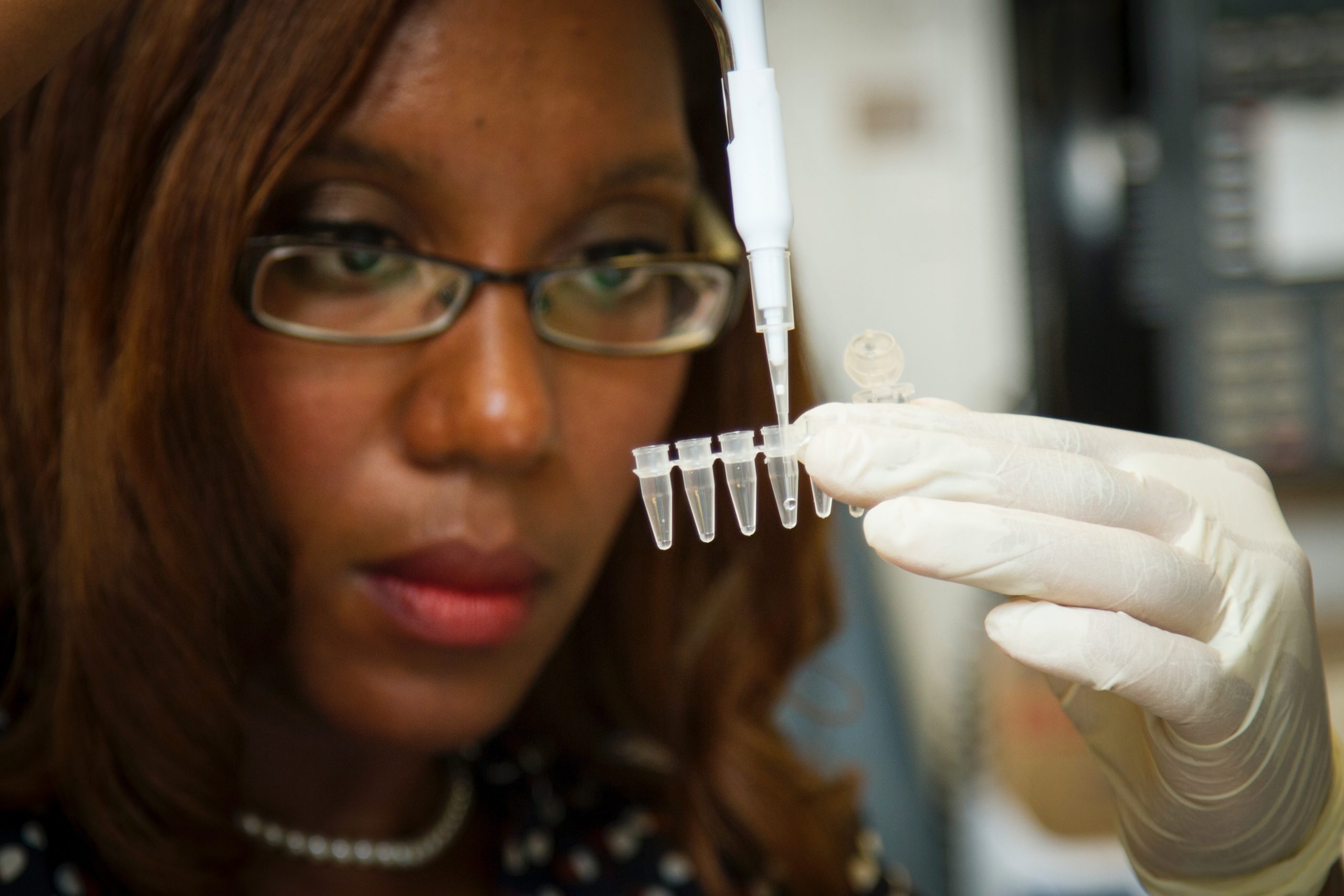Grants
Funding New Project Ideas
Dermatology Foundation grants are annual awards of $25,000. They provide funding that enables recipients to initiate a research project. All grants require the submission of a budget that details the planned use of award funds, and a research/development proposal. Award funds may not be used for the payment of indirect costs, salary, or travel for the principal investigator. MD; MD, PhD; and DO applicants must be no greater than 12 years beyond their terminal degree, and Ph.D. candidates must be no greater than 8 years beyond their terminal degree — as of January 1, 2024.

Know Before You Apply
All Foundation-funded research must be conducted in the U.S. under the sponsorship of a department/division of dermatology that is ACGME-approved for training in dermatology. Applicants must meet the DF’s general eligibility requirements, in addition to award-specific requirements presented on or before the time of funding. Applicants from minority populations are encouraged to apply.
The DF encourages applications concerning health issues impacting applicants from minority populations, including, but not limited to, racial minorities, sexual ¬ gender/LGBTQ minorities, and underserved/disadvantaged populations.
Research Funding FAQs
Am I eligible?
All DF-funded research must be conducted in the U.S. under the sponsorship of a department/division of dermatology that is ACGME-approved for training in dermatology. A project to be performed as a part of the U.S. government research program (except Veterans Administration), or to be performed at a private foundation without an academic affiliation to dermatology, is not eligible for funding. A project involving human subjects must have IRB approval at the time funding commences, i.e., July 1, and throughout the term of the award.
An individual who is a prior or current principal investigator (PI) on a federal grant is not eligible to receive a DF career development award, fellowship or grant. The following two exceptions apply:
1) CDA awardees may have effort on an NIH grant as long as he/she is not the senior PI who initiated the application and he/she does not have direct reporting responsibilities for this or prior federal awards. Total support from all federal grants must be less than 20% of their total effort during the term of the DF award.
OR
2) The individual is the recipient of an NIH training grant or an equivalent grant from another granting agency.
Upon receipt as the PI of a federal grant, a DF CDA or grant will be withdrawn. Note, an individual who receives a federal grant that eliminates their status as a "new investigator" is not eligible to maintain/receive a DF CDA.
Fellowship recipients may receive NIH training grants or an equivalent grant from another granting agency.
Important Note: The Foundation utilizes the NIH definitions of “principal investigator” and “coinvestigator” to administer this policy, as found in the Glossary of NIH Terms.
How do I apply for a research funding?
The DF is now accepting applications for career development awards, fellowships and research grants via our CDAFG Research Award Application Portal. The Applicant Instructions provided below include essential information potential applicants need to know to evaluate the various award opportunities and develop a successful application and research proposal. Interested individuals are strongly encouraged to read sections II and III before assembling their application.
The DF has also prepared a Quick Reference Guide to enable users to quickly acclimate to the online application system.
Application deadline: October 15, 2024
The Patient Directed Investigation Grant exists to support translational studies that have the potential to benefit patients directly. Such studies may concern medical dermatology, dermatologic surgery, procedural dermatology, pediatric dermatology, or other aspects of the specialty that impact patient care.

Naiem T. Issa, MD, PhD
University of Miami
Research Grant
Featured Award Recipient
Computational Drug Discovery of Novel Small-Molecule Inhibitor Chemotypes of GNAQ (Gq) Signaling
GNAQ (Gq) is a heterotrimeric G protein implicated in numerous dermatologic diseases, with Sturge-Weber Syndrome and uveal melanoma being the two most well known. Despite decades of research, a specific small-molecule direct inhibitor of Gq had not been identified until I recently discovered the first putative Gq inhibitor. This project aims to use computational drug discovery to continue identifying novel small molecule Gq inhibitor chemotypes.

